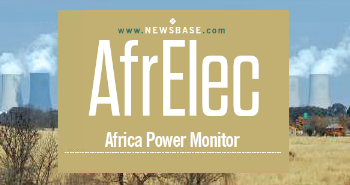AEC defends Africa’s right to develop its energy resources amid criticism from Greenpeace

The African Energy Chamber argues that Greenpeace is not motivated by environmental protection, but by an anti-energy agenda that harms Africa’s development.
What: The AEC says it will not allow the statements of “an environmental hate group” to deter its efforts to advocate for Africa.
Why: The Chamber believes that energy development is key to ending poverty and driving economic growth across the continent.
What next: The AEC calls on Africans to resist being told by foreign groups what they can or cannot do with their resources, and to focus on ending energy poverty.
The African Energy Chamber (AEC) has strongly rejected recent criticism from Greenpeace, accusing the organisation of consistently working to disrupt Africa’s energy development.
Responding to Greenpeace’s claims that the AEC uses lawsuits to silence critics, the Chamber defended legal actions such as the $660mn ruling against Greenpeace in the US, calling them examples of accountability, not intimidation. The landmark ruling by a jury in North Dakota on March 19 found Greenpeace liable for defamation, trespass, nuisance, civil conspiracy and other claims related to its involvement in protests against the Dakota Access Pipeline, as reported by North Dakota Monitor.
“It is a clear example of justice being served to organisations attempting to dismantle global development and community empowerment,” the AEC said in a press statement on July 4, calling Greenpeace “an environmental hate group.”
In the statement, the AEC argues that Greenpeace is not motivated by environmental protection, but by an anti-energy agenda that harms Africa’s development. According to the Chamber, Greenpeace has regularly attacked oil and gas projects that aim to lift African people out of poverty, disregarding the urgent need for energy access across the continent.
“Greenpeace has proven time and time again that it does not in fact care about people; it operates under a mandate to attack the energy industry,” the AEC said.
With over 600mn Africans lacking electricity and 900mn without access to clean cooking, the AEC stresses that Africa’s vast oil, gas and renewable resources must bring tangible benefits to its communities. The aim, it says, is not to export the continent’s energy resources, but to create value, generate jobs and improve the livelihoods of African people.
“It is large-scale oil and gas projects that will achieve this goal,” the AEC said in its statement. “From Namibia’s Orange Basin to Libya’s Sirte to Angola’s Kwanza and Mozambique’s Rovuma, Africa’s oil and gas basins will transform the continent. Major investments stand to do more than extract resources, they create jobs, develop infrastructure, boost skills development and give hope to millions of Africans.”
According to the AEC, these projects are being developed in close coordination with environmental groups. The Chamber highlights the East African Crude Oil Pipeline (EACOP) as an example of responsible energy development. The project, being developed by French supermajor TotalEnergies, will connect Uganda’s oilfields with Tanzania’s port of Tanga. In the statement, the AEC emphasised that environmental and social impact assessments (ESIAs) for the project were carried out in compliance with the standards of the International Finance Corporation (IFC), third-party reviews were conducted, and regular engagement with communities was deployed.
“Special attention has been paid to information, consultation and consensus-building with all stakeholders. Over 70,000 people were consulted for the ESIAs and more than 20,000 meetings have been held to date with the populations concerned and civil society organisations. The project is an example of how oil companies are in fact working in close partnership with environmental authorities,” the Chamber said.
Despite this, Greenpeace continues to oppose energy projects across the continent. In South Africa, it has launched campaigns against energy supermajor Shell (UK) and Canadian exploration and development company Africa Oil Corp., blocking exploration efforts and launching appeals against environmental authorisations. In Mozambique, Greenpeace has pressured investors to pull out of liquefied natural gas (LNG) projects in the Rovuma Basin, delaying major developments of world-class resources that could transform the region into an energy hub.
In the statement, the AEC questioned why Greenpeace targeted African projects so aggressively, yet remained silent on similar developments in the Middle East. “This is an intentional attack on the continent,” the Chamber pointed out.
While the AEC has made efforts to work with environmental groups, it claims Greenpeace is not interested in constructive partnerships. The Chamber accuses the group of spreading misinformation, disrupting vital infrastructure and hurting Africa’s chances of economic advancement. “They only want disruption,” the AEC stated, adding that “sustainable development is about people, it is about inclusivity and it is about democracy”.
The Chamber argues that lawsuits like the one against Greenpeace are not isolated incidents but part of a wider effort to hold disruptive actors accountable. It calls on Africans to resist being told by foreign groups what they can or cannot do with their resources, and to focus on ending energy poverty.
“We should ask ourselves: will we allow environmental groups to dictate what Africa deserves? Will we allow these groups to attack projects, prevent growth and disrupt the livelihoods of people? Or will be make energy poverty history and transform the lives of African people?”





Follow us online